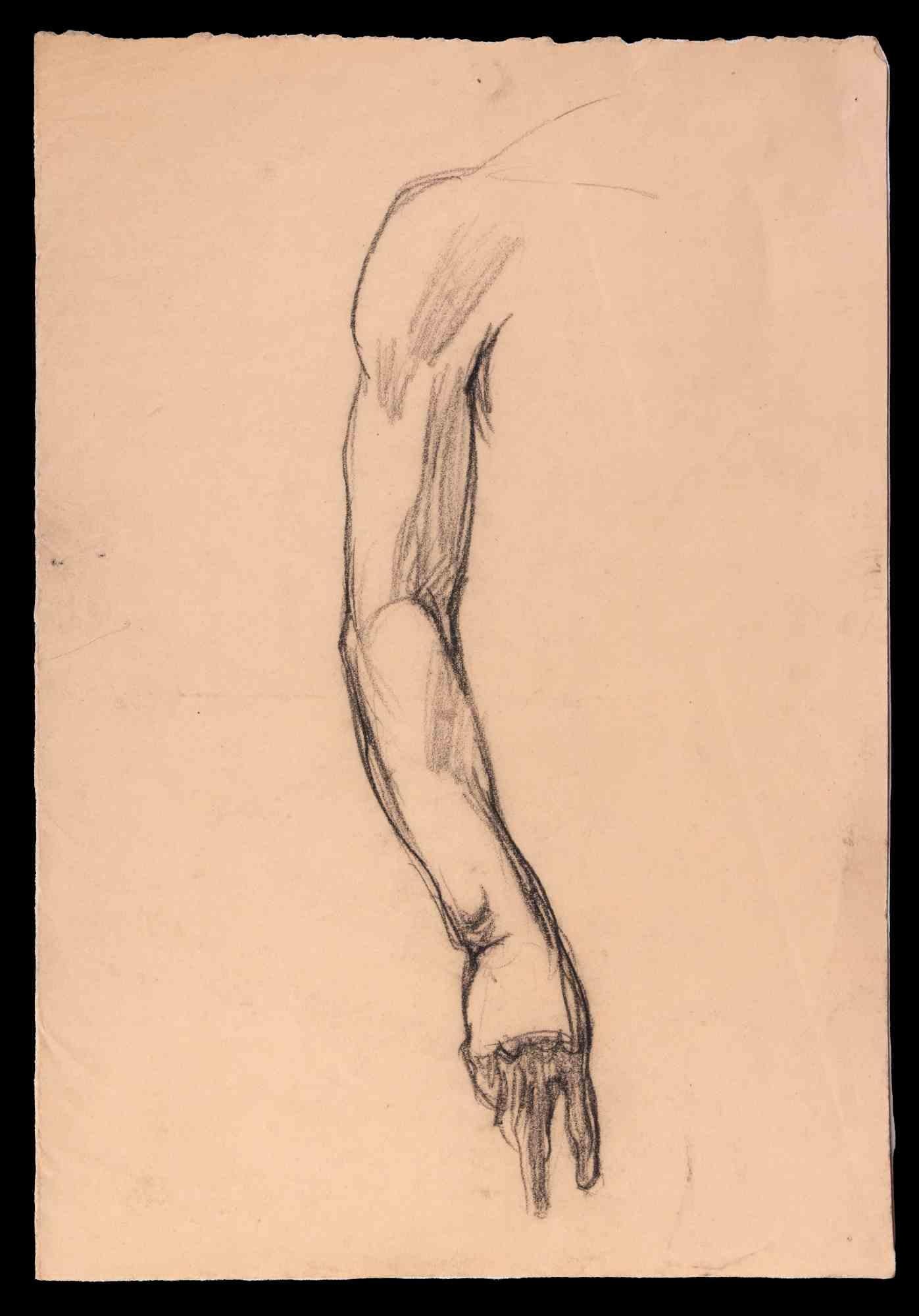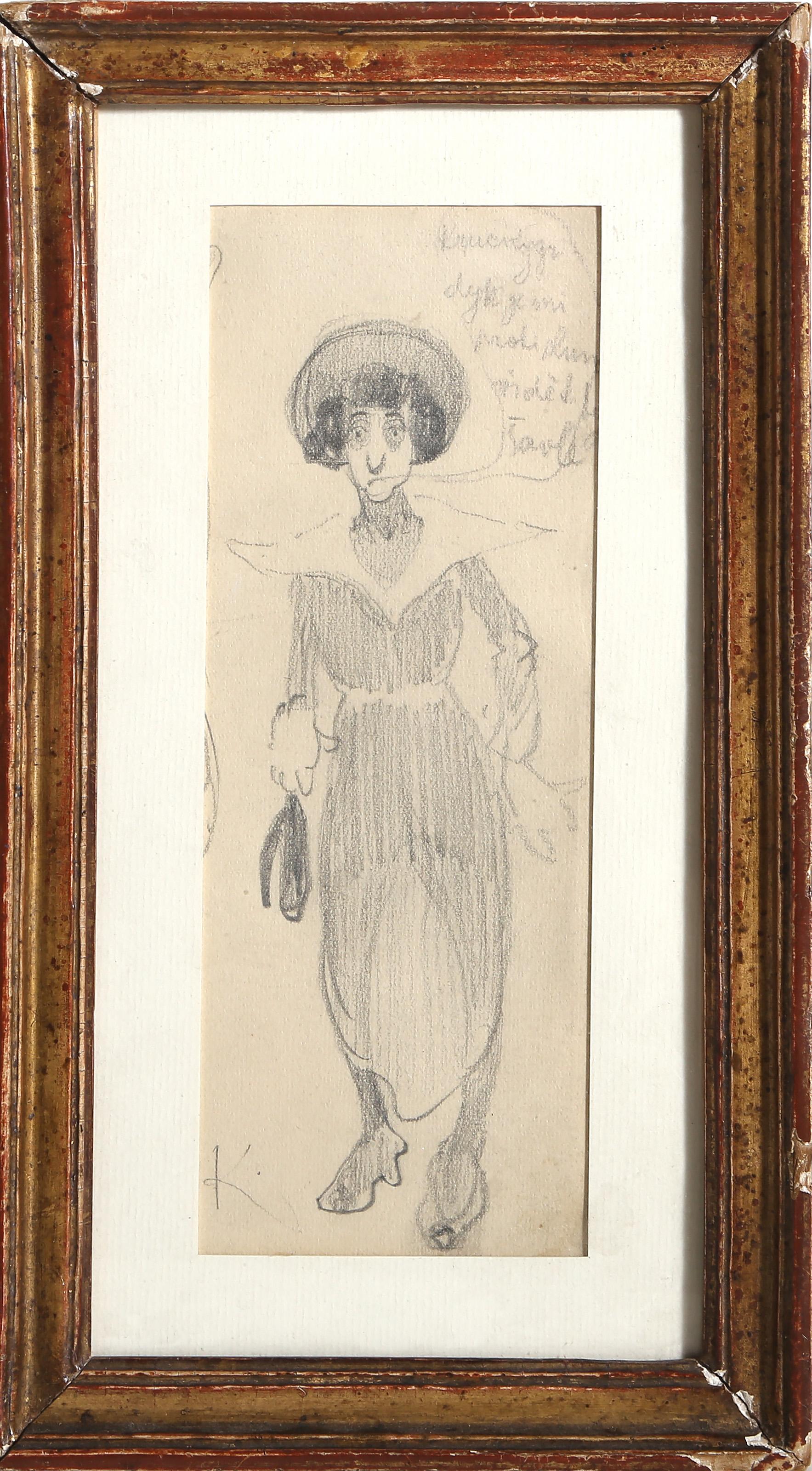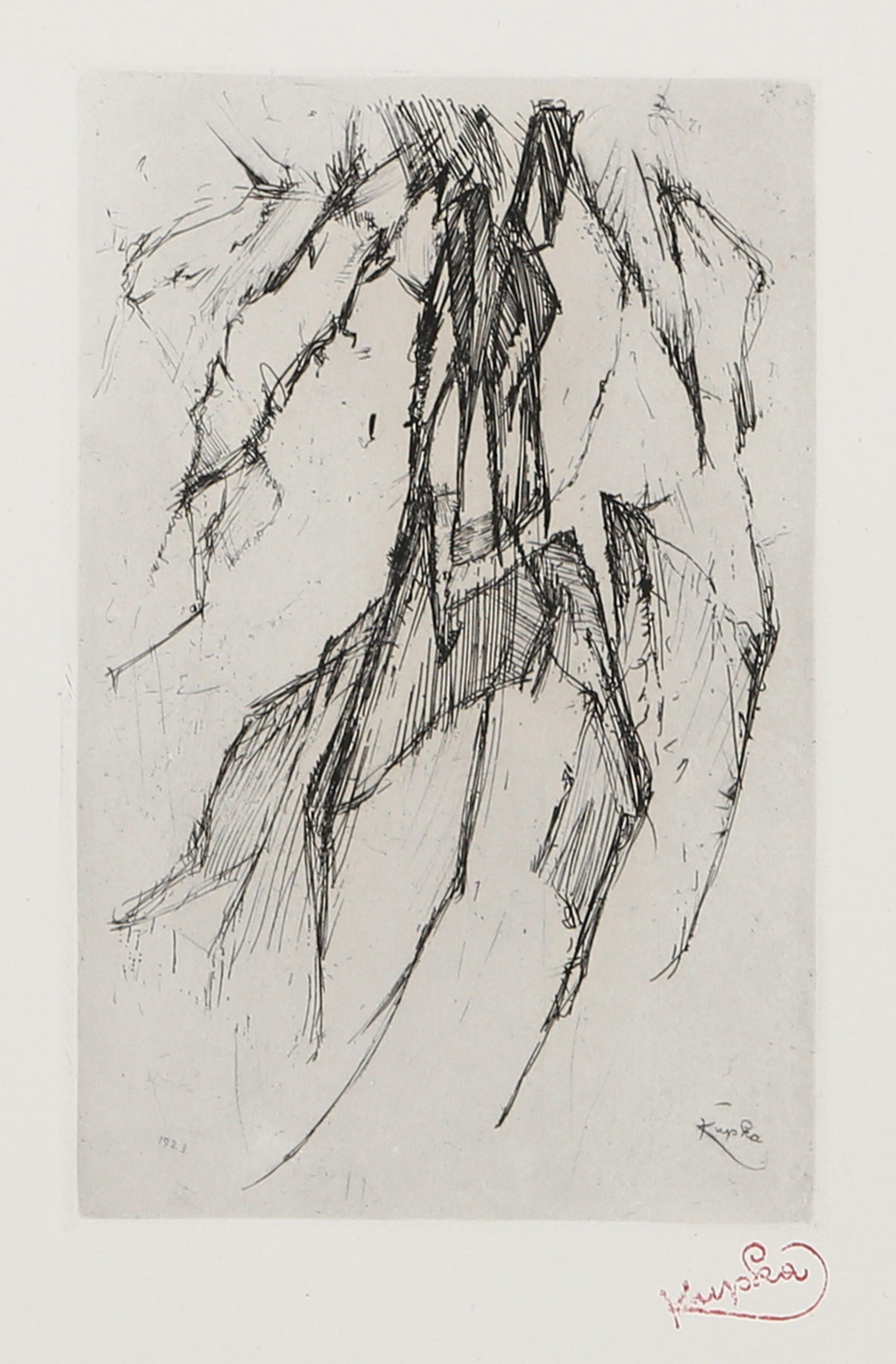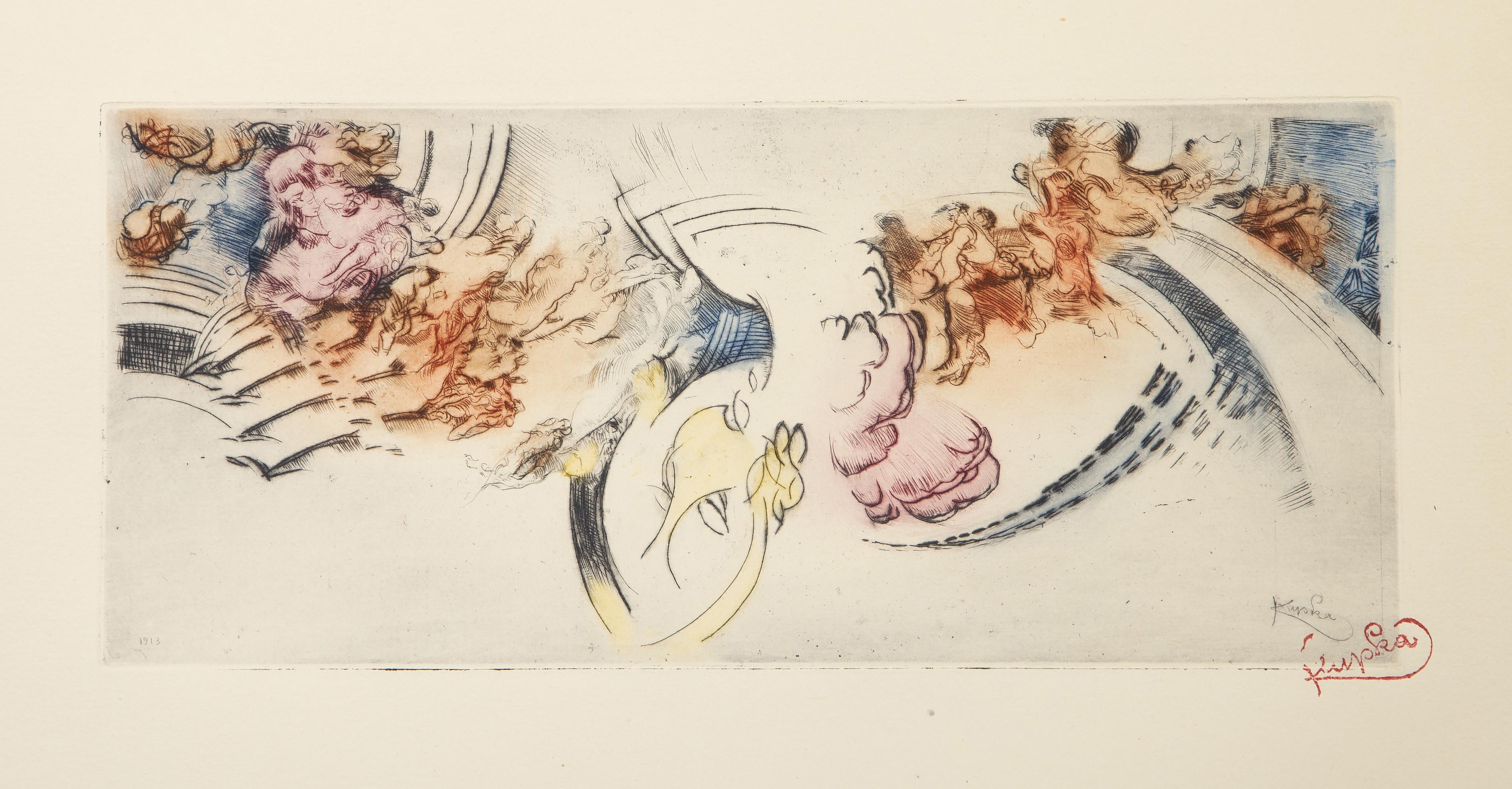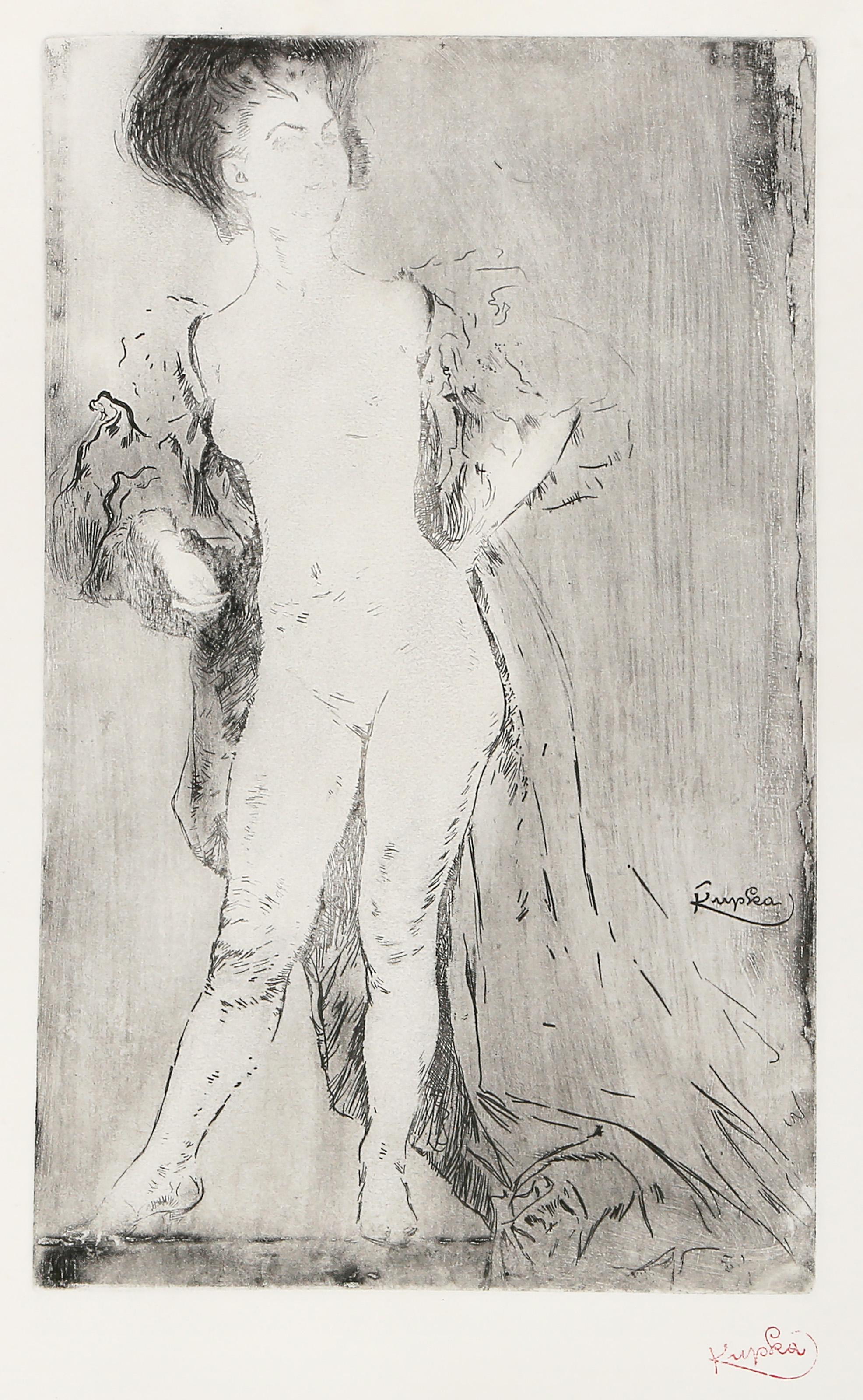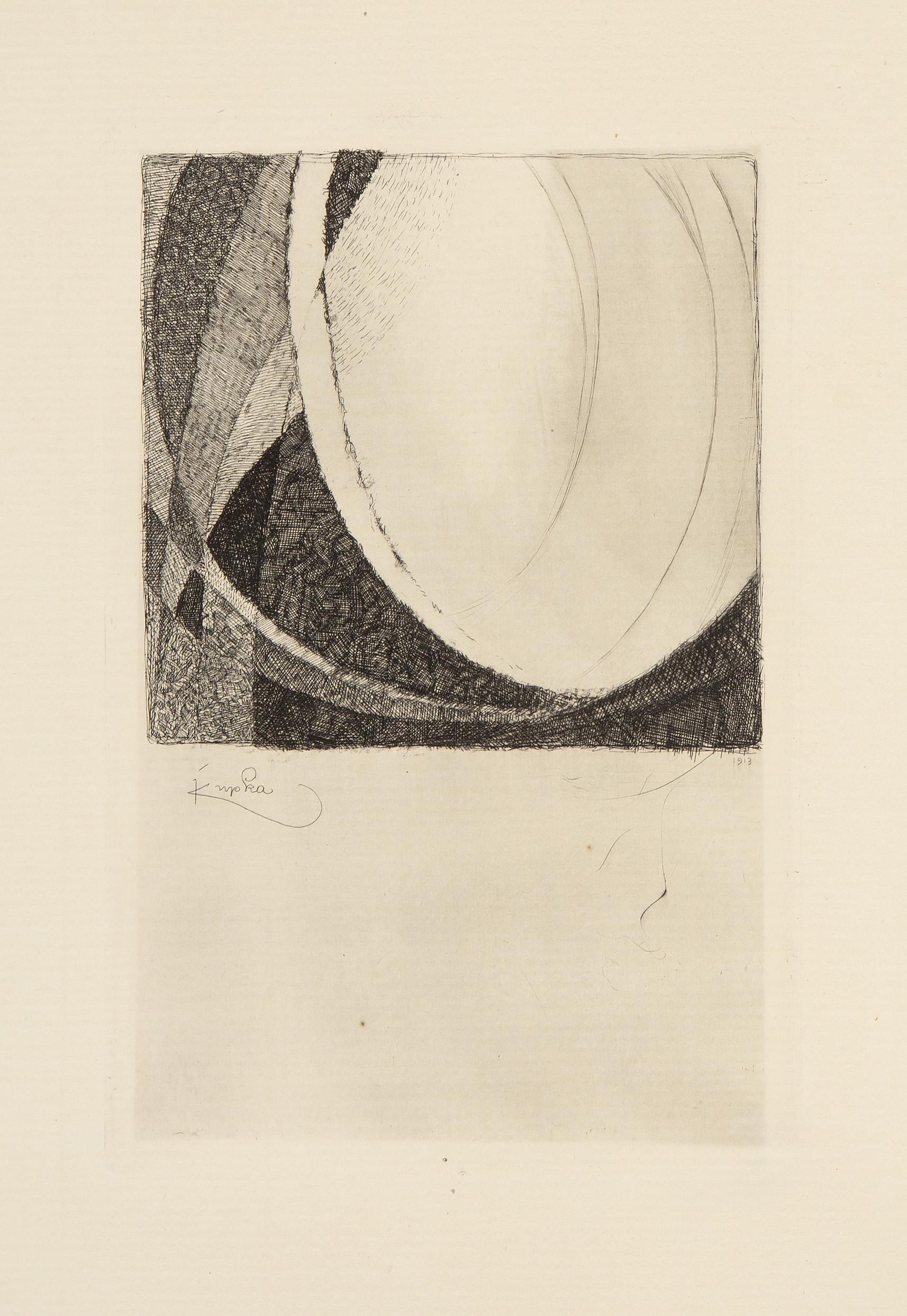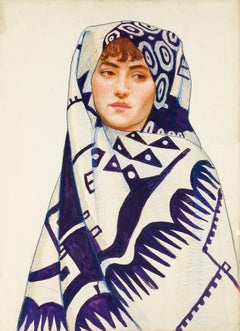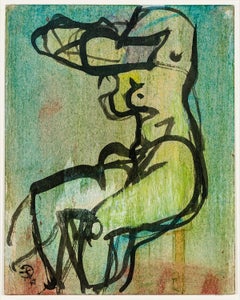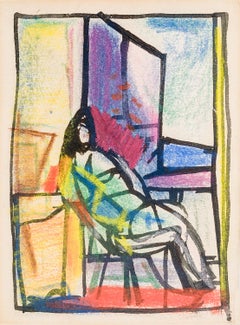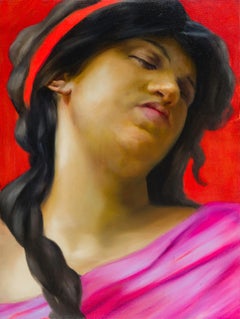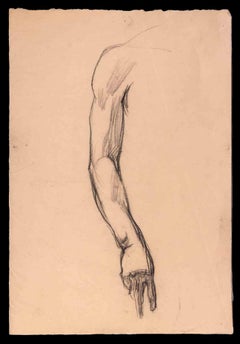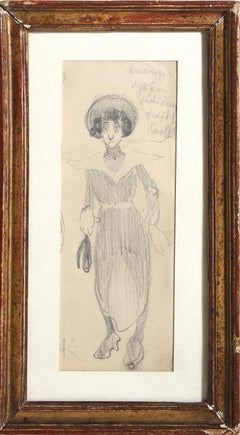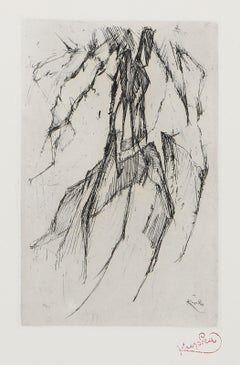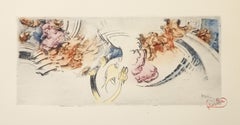Items Similar to Arm
Want more images or videos?
Request additional images or videos from the seller
1 of 8
Frantisek KupkaArmUnknown
Unknown
$18,000
£13,487.68
€15,811.50
CA$25,208.87
A$28,254.83
CHF 14,791.79
MX$348,647.70
NOK 185,812.49
SEK 174,908.56
DKK 117,954.77
Shipping
Retrieving quote...The 1stDibs Promise:
Authenticity Guarantee,
Money-Back Guarantee,
24-Hour Cancellation
About the Item
Pastel on paper
13 x 19 in. (33 x 48.2 cm.)
Signed (at lower right): Kupka
EX COLL.: private collection, St. Louis; to Howard Baer, 1972; [Gimpel-Weitzenhoffer Galleries,
New York, 1972]; to B. C. Holland, until 1979; to The Museum of Modern Art, New York, until 1987
The Czech-born artist, Frantisek Kupka, studied art at the Prague Academy of Fine Arts from 1886
to 1889. In 1891, he moved to Vienna, and in 1895 he established himself as an artist in Paris.
Kupka, whose aesthetics were shaped by early on by German philosophy and symbolist painting,
remained on the periphery of the Parisian avant-garde. He steadfastly rejected any association with any artistic school or trend, although his bold use of color, particularly in delineating form and
volume, allied him with Matisse and the Fauvists.
Kupka was deeply interested in mysticism, and he spent his life in search of a transcendental “fourth dimension.” In search of forms from this alternate reality, Kupka became one of the first non-objective painters. The brilliant blue-lavender color that emanates from and envelops the form of the arm in the present pastel study represents the ambient energy of the cosmos that connects the human form to the rest of nature.
- Creator:Frantisek Kupka (1871 - 1957, Czech)
- Creation Year:Unknown
- Dimensions:Height: 13 in (33.02 cm)Width: 19 in (48.26 cm)
- Medium:
- Period:
- Condition:
- Gallery Location:New York, NY
- Reference Number:Seller: HA 67561stDibs: LU2310084232
About the Seller
5.0
Recognized Seller
These prestigious sellers are industry leaders and represent the highest echelon for item quality and design.
Established in 1952
1stDibs seller since 2010
35 sales on 1stDibs
Typical response time: 14 hours
Associations
Art Dealers Association of America
- ShippingRetrieving quote...Shipping from: New York, NY
- Return Policy
Authenticity Guarantee
In the unlikely event there’s an issue with an item’s authenticity, contact us within 1 year for a full refund. DetailsMoney-Back Guarantee
If your item is not as described, is damaged in transit, or does not arrive, contact us within 7 days for a full refund. Details24-Hour Cancellation
You have a 24-hour grace period in which to reconsider your purchase, with no questions asked.Vetted Professional Sellers
Our world-class sellers must adhere to strict standards for service and quality, maintaining the integrity of our listings.Price-Match Guarantee
If you find that a seller listed the same item for a lower price elsewhere, we’ll match it.Trusted Global Delivery
Our best-in-class carrier network provides specialized shipping options worldwide, including custom delivery.More From This Seller
View AllGirl in Decorative Wrap
By Winold Reiss
Located in New York, NY
Winold Reiss (1886-1953), who scholars increasingly recognize as a pivotal figure in early 20th-century American art, is known for his evocative portraits that capture the spirit and...
Category
20th Century American Modern Portrait Drawings and Watercolors
Materials
Mixed Media, Board
Seated Nude Figure
By Franz Kline
Located in New York, NY
Signed (at lower left): FK [in monogram]
EX COLL.: the artist; to I. David Orr (1904–1997), Long Island, New York; to his estate, 1997 until the present
Originally trained as a fig...
Category
Mid-20th Century Abstract Expressionist Nude Drawings and Watercolors
Materials
Paper, Watercolor, Ink
Seated Woman (Elizabeth)
By Franz Kline
Located in New York, NY
EX COLL.: the artist; to I. David Orr (1904–1997), Long Island, New York; to his estate, 1997 until the present
Originally trained as a figurative painter, Kline was an exceptional ...
Category
Mid-20th Century Abstract Expressionist Portrait Drawings and Watercolors
Materials
Pastel, Paper, Ink
Tumbling into Light
By Angela Fraleigh
Located in New York, NY
Signed and dated (on verso): Angela Fraleigh 2021
Category
2010s Contemporary Figurative Paintings
Materials
Canvas, Oil, Panel
A Pang of Vivid Light
By Angela Fraleigh
Located in New York, NY
Signed and dated (on verso): "Angela Fraleigh 2021"
Category
2010s Contemporary Figurative Paintings
Materials
Linen, Oil
Gloria
By Franz Kline
Located in New York, NY
Signed (at lower right): FK [in monogram}
EXHIBITED: Whitney Museum of American Art, New York, October 1–November 24, 1968; Dallas Museum of Fine Arts, Dallas, December 17, 1968–Jan...
Category
Mid-20th Century Abstract Expressionist Nude Paintings
Materials
Oil, Board
Price Upon Request
You May Also Like
Study For an Arm - Original Drawing - Early 20th Century
By Pierre Georges Jeanniot
Located in Roma, IT
Study For An Arm is an Original Carbon Pencil Drawing realized by Pierre Georges Jeanniot in the early 20th century.
The Drawing is in good condition on a yellowed cardboard.
No si...
Category
Early 20th Century Modern Figurative Drawings and Watercolors
Materials
Pencil
Personnage, Modern Crayon Drawing by Frantisek Kupka
By Frantisek Kupka
Located in Long Island City, NY
Frantisek Kupka, Czech (1871 -1957) - Personnage, Medium: Crayon on Paper, initaled lower right in pencil, Size: 8 x 3 in. (20.32 x 7.62 cm), Frame Size: 11.25 x 6.5 inches, Descr...
Category
1910s Modern Figurative Drawings and Watercolors
Materials
Crayon
Fountain, Surrealist Etching by Frantisek Kupka
By Frantisek Kupka
Located in Long Island City, NY
Frantisek Kupka, Czech (1871 - 1957) - Fountain. Year: 1923, Medium: Etching, stamp signed and signed in the plate, Image Size: 9 x 6 inches, Size: 20 x 13.25 in. (50.8 x 33.66 cm), ...
Category
1920s Surrealist Prints and Multiples
Materials
Etching
Abstract Composition (Color), Surrealist Etching by Frantisek Kupka
By Frantisek Kupka
Located in Long Island City, NY
Frantisek Kupka, Czech (1871 - 1957) - Abstract Composition (Color). Year: 1913, Medium: Color Etching on Richard de Bas, stamp signed and signed in the plate, Image Size: 6 x 13.5 i...
Category
1910s Surrealist Prints and Multiples
Materials
Etching
Femme Debout, Nude Surrealist Etching by Frantisek Kupka
By Frantisek Kupka
Located in Long Island City, NY
Femme Debout by Frantisek Kupka, Czech (1871–1957)
Date: circa 1912
Etching on Arches, signed in the plate and stamp signed
Image Size: 15.5 x 9.75 inches
Size: 22 x 15 in. (55.88 x ...
Category
1910s Surrealist Nude Prints
Materials
Etching
Amorpha, Surrealist Etching by Frantisek Kupka
By Frantisek Kupka
Located in Long Island City, NY
Frantisek Kupka, Czech (1871 - 1957) - Amorpha. Year: 1913, Medium: Etching on Richard de Bas, Image Size: 9 x 5.75 inches, Size: 20.25 x 12.75 in. (51.44 x 32.39 cm), Description: F...
Category
1910s Surrealist Prints and Multiples
Materials
Etching
More Ways To Browse
Kupka Frantisek
China Ink Nudes
1919 Charcoal
18th Century Watercolor And Ink Paintings
1960 Graphite Painting
17th Ink Drawings
Red Chalk Drawing
Vintage Intaglio Glass
1970s Pen Drawings
20th Century Charcoal Sketch
Judaica Watercolor
Donkey Drawing
Orientalist Drawing
Sanguine Drawings
Orientalist Watercolor
Orientalist Watercolor Paintings
Nude China Ink Drawings
Vintage African Bag
